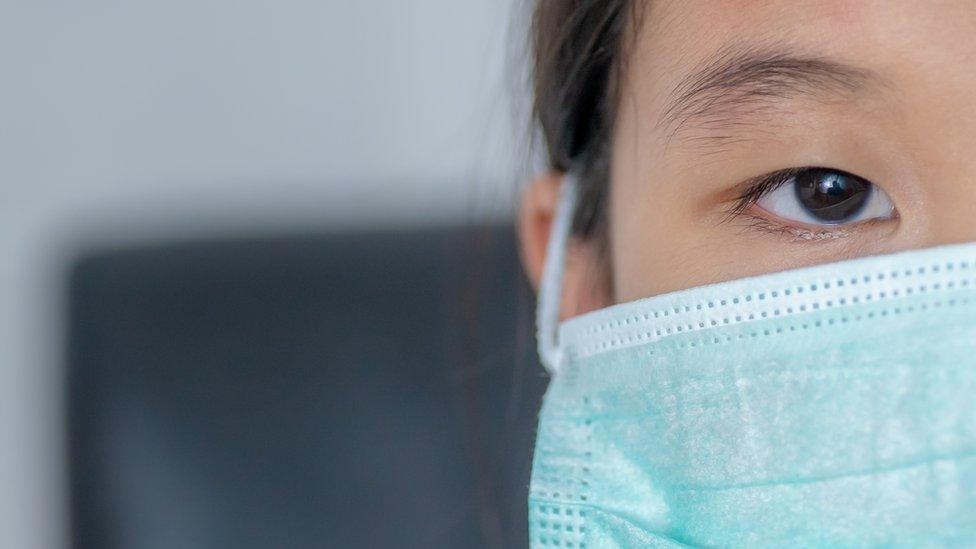Personal protective equipment: What is PPE and why is it important?
- Published
- comments

You might have heard a lot of people mention PPE when talking about the coronavirus.
Perhaps you heard about it on the news, or you might have family who need to use it?
But what is it? And why is it important? Here's everything you need to know.
What is PPE?
PPE stands for personal protective equipment.
It includes items such as masks, safety helmets, gloves, eye protection and high-visibility clothing - wearable items designed to keep people safe.
Why is PPE important?
This equipment helps reduce the risk of people from coming into harm.
Some key workers like NHS staff are wearing PPE, such as masks, face visors, gloves and gowns.
That's because these items help to stop the spread of coronavirus - if they are used properly they can help save lives.
They stop people coming into contact with tiny amounts of the virus in the air when people cough or sneeze, or residue on skin or surfaces. They also reduce the risk of passing on the virus to another by covering the mouth, nose and hands.
Who should wear it?
Anyone who comes into close contact with patients who may have or are confirmed as having coronavirus should wear some form of protection.
That includes staff working in care homes, prisons and other community settings as well as in GP surgeries or hospitals.
The type of PPE required depends on the level of risk.
The current guidelines say that anyone working within two metres of a patient with confirmed or suspected coronavirus should wear an apron, gloves, a surgical mask and eye protection.
However, the government's public health experts have said some items should be reused if stocks run low.
Why are people talking about it so much?
There is some concern that there's not enough PPE to go round to those who need it with the organisation that represents doctors in the UK, the British Medical Association (BMA), saying some supplies are at "dangerously low levels".
Doctors and nurses have been asked by the government's health advisers to work without full-length gowns and to reuse other certain items, as "some compromise is needed to optimise the supply of PPE in times of extreme shortages".
The government says there is enough of this "precious resource" to go around, it says it will have provided more than one billion pieces of PPE across the UK by the weekend of 18-19 April.
Whether that's enough for all who need it is a difficult question to answer.
The government said it will take a really big effort to get the right PPE to those who need it.
- Published27 August 2020
- Published31 July 2020
